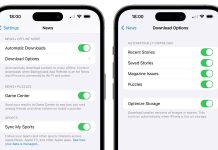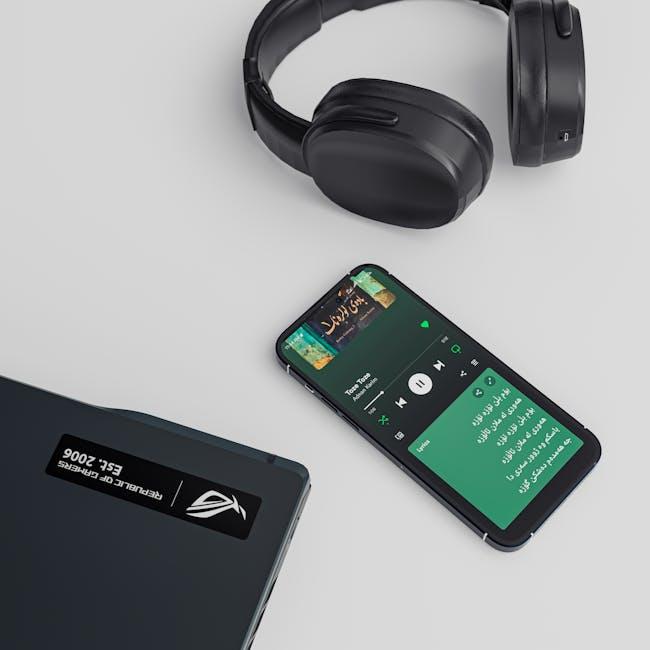In today’s digital age, streaming has become an integral part of our daily entertainment routine. With a plethora of platforms and content at our fingertips, optimizing your streaming experience can significantly enhance your viewing pleasure. However, many users are unaware of the hidden shortcuts and tips that can make a world of difference. This article delves into these lesser-known strategies, offering practical guidance to help you navigate your favorite streaming services with ease and efficiency. Whether you’re a tech-savvy enthusiast or a casual viewer, these insights will equip you with the tools to maximize your enjoyment and streamline your viewing habits.
Optimizing Buffering Speed for Seamless Viewing
To enhance your streaming experience, focus on techniques that minimize buffering interruptions. Start by examining your internet connection. Ensure your Wi-Fi signal is strong; positioning your router centrally in your home can make a significant difference. Consider a wired connection if possible, as Ethernet cables often provide more stable and faster connections compared to Wi-Fi.
- Update your streaming app or device: Developers regularly release updates that optimize performance and fix bugs. Keeping your app up to date can enhance buffering speed.
- Clear cache regularly: Cached data can bog down performance over time. Clearing it can free up resources, leading to smoother streaming.
- Limit background applications: Close unnecessary programs and apps running in the background on your device to free up bandwidth and processing power.
- Adjust video quality settings: If buffering persists, lowering the video quality slightly can lead to a more consistent viewing experience without interruptions.

Enhancing Audio Quality with Simple Adjustments
Optimizing audio settings can significantly transform your streaming experience, making it more immersive and enjoyable. Here are a few simple adjustments you can make to enhance audio quality effortlessly:
- Equalizer Settings: Fine-tuning the equalizer can help balance different sound frequencies. Experiment with presets like “Rock,” “Classical,” or “Jazz” to find the best match for your content.
- Volume Normalization: Enable this feature to maintain consistent audio levels across different tracks and shows, preventing sudden spikes in volume.
- Use of Quality Headphones: Invest in a good pair of headphones or speakers. High-quality audio equipment can make a noticeable difference, offering richer and more detailed sound.
- Sound Enhancements: Some streaming platforms provide built-in sound enhancements such as “Surround Sound” or “Bass Boost.” Explore these options to see how they affect your listening experience.
By incorporating these straightforward tweaks, you can elevate your audio setup, ensuring every note and dialogue is crystal clear. Remember, a little adjustment can go a long way in enriching your entertainment sessions.

Customizing Subtitles for Better Accessibility
Enhancing your viewing experience by adjusting subtitle settings can significantly improve accessibility for everyone, especially for those who are hard of hearing or non-native speakers. With a few simple tweaks, you can make subtitles more readable and engaging. Here are some tips to help you get started:
- Font Style and Size: Opt for a clear, sans-serif font like Arial or Helvetica, which ensures better readability. Adjust the font size to be large enough to read comfortably without being obtrusive.
- Color and Contrast: Choose a subtitle color that contrasts well with the background. White or yellow text with a black outline often provides the best visibility.
- Background Opacity: Adding a semi-transparent background can make subtitles stand out without obscuring the content behind them.
- Positioning: Customize the position of the subtitles to avoid blocking important visual content. Many streaming platforms allow you to move subtitles to different areas of the screen.
- Language Options: If you’re learning a new language, consider enabling subtitles in that language to enhance both understanding and learning.
By tailoring these settings to suit your personal preferences and needs, you can make your streaming sessions more enjoyable and inclusive for all viewers.
Leveraging Device Settings for Optimal Performance
Unlocking the full potential of your device can significantly enhance your streaming experience. Start by delving into your device settings to make the most of what’s available. Adjusting display settings for optimal brightness and contrast can reduce strain on your eyes and improve picture clarity. Many devices offer a night mode or blue light filter, which can be beneficial during late-night binge sessions.
- Resolution Settings: Ensure that your streaming resolution matches your screen’s capability. Streaming in 4K on a device that only supports 1080p can waste bandwidth without improving picture quality.
- Network Preferences: Prioritize your streaming app in network settings to prevent buffering, especially if multiple devices are connected to the same network.
- Battery Optimization: Disable battery saver modes during streaming to maintain peak performance and prevent interruptions.
Taking advantage of these built-in settings can lead to smoother playback, reduced buffering, and an overall enhanced viewing experience. Regularly updating your device’s software ensures that you have the latest performance enhancements and security features at your disposal.







































